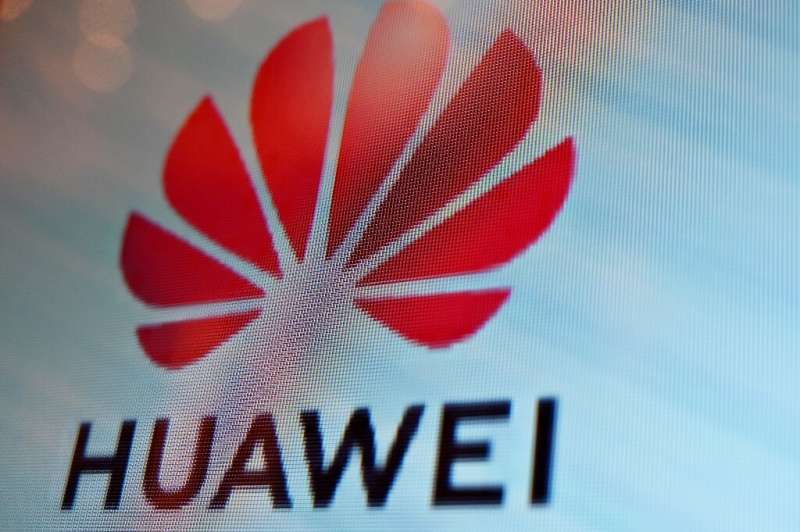Huawei is the world's leading supplier of telecom networking gear
Chinese telecom giant Huawei said Wednesday it achieved the latest in a string of record profits last year, but revenue growth slowed sharply because of the pandemic and tightening US pressure that has pushed it into new business lines to survive.
Unlisted Huawei said net profit rose 3.2 percent to 64.6 billion yuan ($9.9 billion) in 2020, while revenue inched 3.8 percent higher to 891.4 billion yuan.
The world's leading supplier of telecom networking gear and a top smartphone brand, Huawei faces uncertainty since the administration of former president Donald Trump launched a campaign in 2018 to contain the company.
The American pressure has taken time to impact the bottom line, but the results unveiled Wednesday clearly showed that they were biting.
Bloomberg News said its calculations showed that Huawei's revenue in the fourth quarter of 2020 shrank for the first time on record. Huawei representatives could not immediately confirm that.
Before the US campaign began, revenue growth was routinely in excess of 30 percent. It slowed to around 19 percent in 2019.
"It's fair to say that in 2020 we saw a slowdown in the growth rate and yes, life was not easy for us," chairman Ken Hu said during a briefing at Huawei's sprawling campus in the southern city of Shenzhen.
The earnings report also indicated that Huawei may increasingly find its fortunes tied to the huge China market as overseas pressure mounts.
While revenue in China grew 15.4 percent last year, it dropped 24.2 percent in the US market, 12.2 percent in Europe, Middle East and Africa, and 8.7 percent in the Asia-Pacific region.
Smartphone sales also have stalled after the US cut Huawei off from key components and banned it from using Google's Android services.
Huawei said the unit that makes smartphones and other personal devices, and which accounts for more than 50 percent of overall revenue, managed just 3.3 percent sales growth in 2020.
Data released previously by independent sector analysts has shown that both domestic and overseas Huawei phone shipments plunged more than 40 percent in the fourth quarter of 2020.
'Unfair'
Hu blamed the "unfair" US pressure.
"The US restrictions have impacted our consumer business, especially our mobile phone business, leading to the moderate growth rate we achieved last year," he said.
US allies also have responded to Washington's warnings of a Huawei security threat by banning its networking equipment from their telecom systems.
Revenue growth in Huawei's carrier network division was flat last year, just 0.2 percent.
The United States, locked in a worsening rivalry with China, fears Beijing's Communist government could utilise Huawei systems installed around the world for espionage.
China's government and Huawei have heatedly rejected the suggestion.
Hope of a reset under the administration of President Joe Biden was dashed two weeks ago when US regulators included Huawei on a list of Chinese telecom companies deemed to pose a national security risk.
On top of all that, chief financial officer Meng Wanzhou—daughter of CEO and founder Ren Zhengfei—is in Canada fighting extradition to the United States on charges including violation of US sanctions against Iran.
Analysts have said that while Huawei will likely survive, a major transformation is imperative.
The company has pressed ahead with that, fast diversifying to encompass enterprise and cloud computing, internet-of-things devices and networks, and other business segments related to the advent of 5G networks, an area of Huawei strength, while refocusing on the friendly China market.
Huawei sold its Honor budget phone line to a domestic consortium late last year and—exiled from Android—is pushing to build up the ecosystem surrounding its remaining smartphone business.
Hu said Huawei's transformation would continue.
© 2021 AFP























